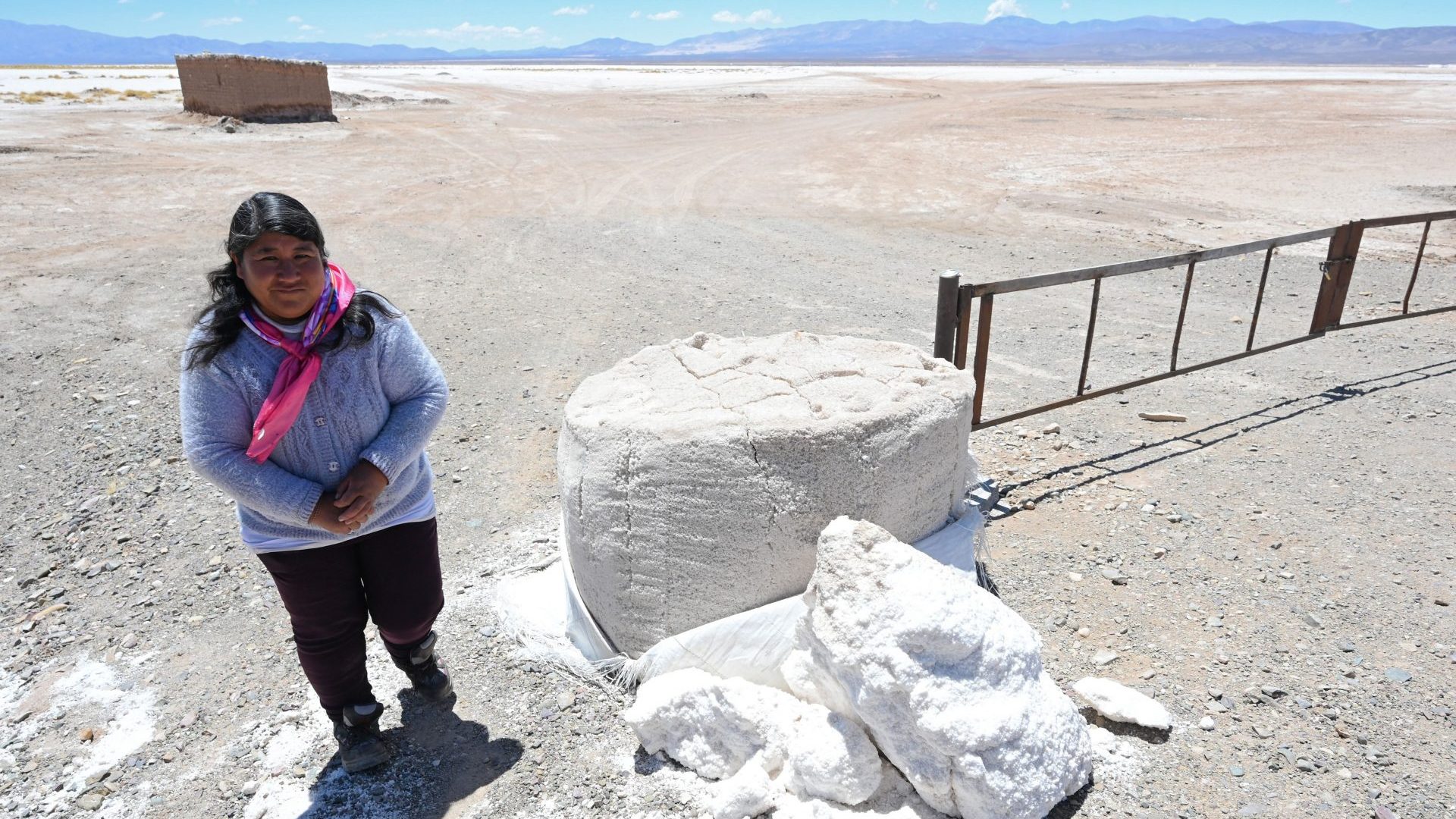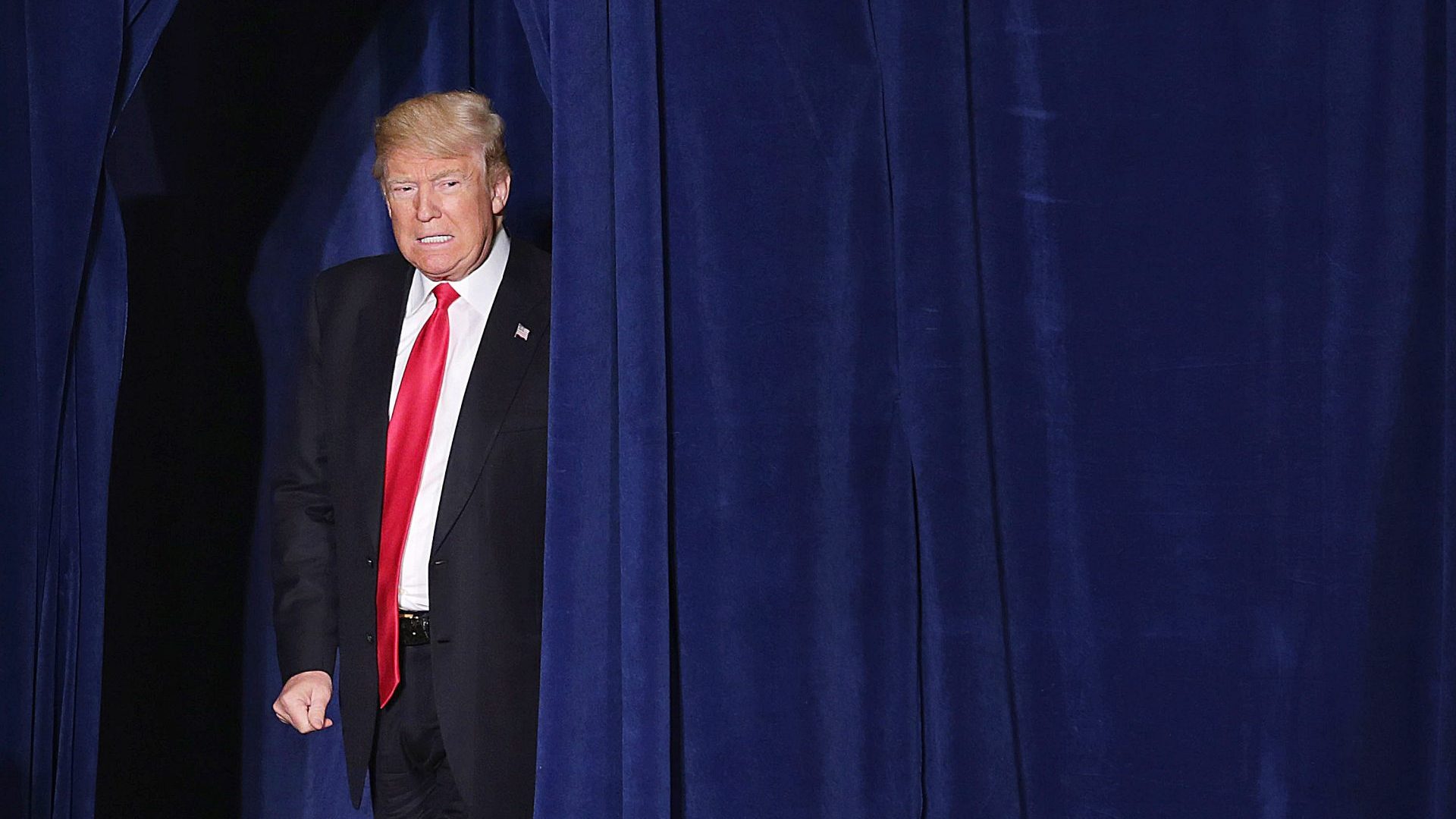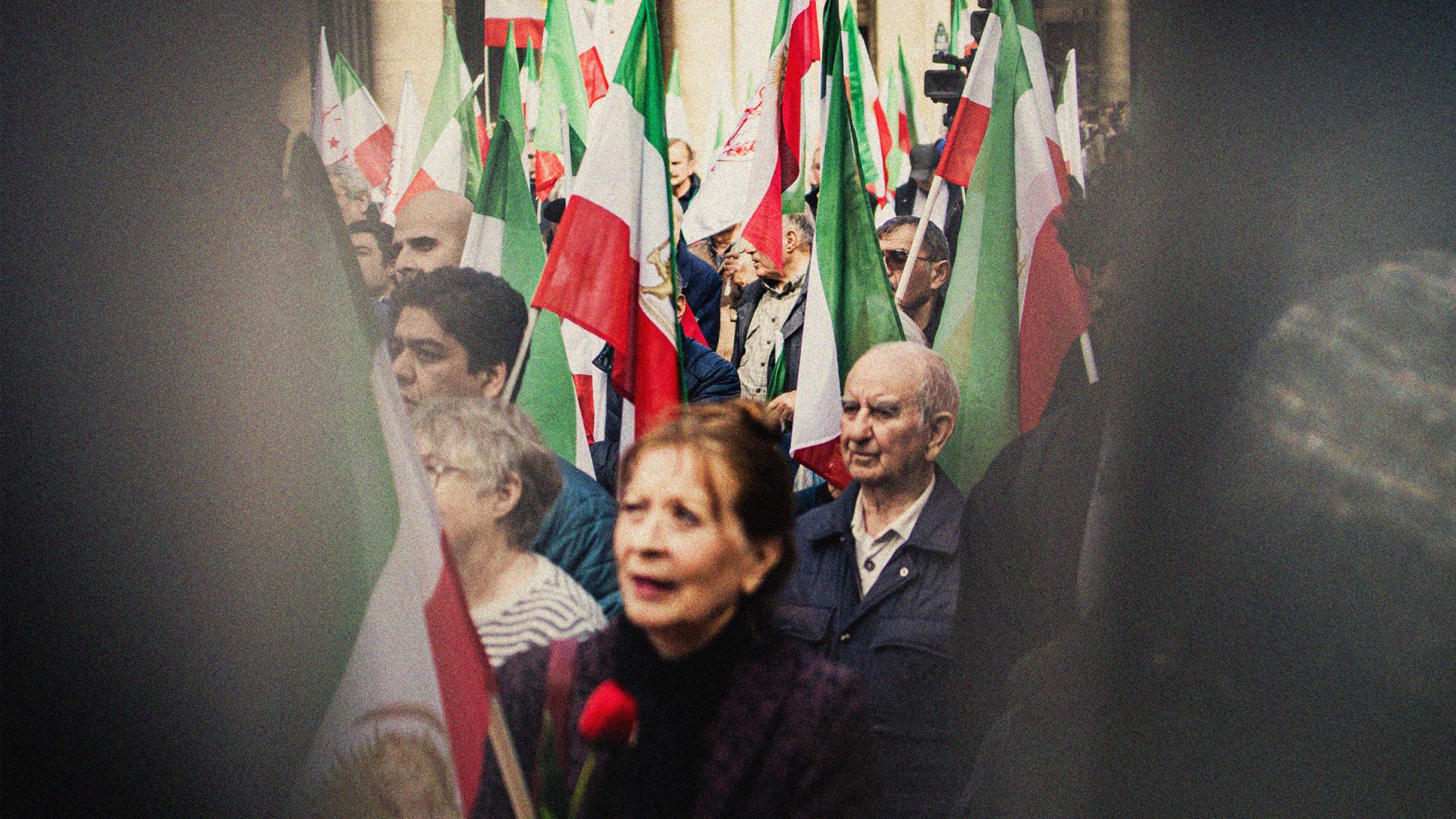Spray-painted over murals in villages across the Salinas Grandes, Argentina’s largest salt flat, is a message: “No to lithium mining”. The graffiti is written in capitals. Underneath, it says: “No to contamination”.
For centuries, indigenous people have lived around this vast white desert, a biodiverse ecosystem that stretches across 200 miles. But now they are scared that their homes, livelihoods, and culture could be on the brink of extinction.
The global race to find and extract lithium has come to their land, and the search for new sources of the metal is intense. That’s because it is an essential component for the batteries found in all modern devices, including mobile phones and electric cars. The global tech industry’s appetite for lithium is so great it has become known as “white gold” and demand is predicted to rise more than 40-fold by 2040. Mining companies are scouring the earth for untapped resources.
Their sights, now, are set on the Salinas Grandes, which sits within the lithium triangle that stretches across the borders of Chile and Bolivia.
For 15 years, the 33 indigenous communities living around the salt plain, which survive by small-scale agriculture and livestock, have worked together to stop the mining operations. But Argentina is in the throes of a new push for foreign investment, driven on by president Javier Milei. The people trying to hold back the lithium prospectors fear they could be fighting a losing battle.
“If the lithium companies come, then there will be no more water, no more animals,” said Clemente Flores, a community leader. “There will be no more life.”
When I first visited the region in December 2023, it was in the aftermath of violent protests. The provincial government had made sweeping, overnight changes to its constitution, altering the rights of indigenous people over their lands in order to open the way for lithium mining. The protests were brutally repressed, leaving several people blinded and dozens more injured. “It was like a war,” Liliana Lamas told me. “We had to hide in the hills with the children, hide from the boots, the helmets, the batons.”
By my second visit, in June 2024, people around here said that the mining companies were already starting to move in – and quickly. They were coming with promises of work, new schools and roads. People who were against the projects compared these offers to the Spanish conquistadors, seeing it as little more than a policy of “divide and conquer”.
“If they go ahead with these projects, in 30 years there will be no water, no way of living,” said Iber Sarapura, who lives here. “People will migrate to the cities and eventually there will be nothing.”
The primary concern is water. Each tonne of lithium requires the evaporation of around 2m litres of water, which environmentalists warn could drain the region’s wetlands. It also risks contaminating fresh groundwater, which could endanger the small-scale agriculture.
The indigenous people have a phrase: “water is life”. That saying has now been flipped by the government. New billboards have appeared, put up by the local authorities, that read “Energy is life”.
“The government is playing its game,” said Leonardo Crippa, of the Kolla people of Jujuy, and a senior staff attorney at the Indigenous Peoples Legal Resource Center. “They’re trying to pave the way, to make it easier for mining companies to work there.”
And plans seem to be progressing. Recently, the governors of three provinces in the north-west signed an agreement for energy development in the lithium region, with an investment of $400m. “We are working to ensure that lithium is synonymous with development and opportunities for northern Argentina,” said Gustavo Sáenz, governor of Salta province.
Flores said his people are feeling ever more encircled. “The Jujuy government, allied with the national government, are once again driving new mining companies to develop here. We communities feel even more trapped,” he said. But, he added, they will continue their fight regardless – they have little choice.
“Milei is the Vende Patria – the one who sells his own country,” said Sarapura. “He treats the indigenous people like we do not exist. But we will keep fighting, for ourselves and our communities.”
Harriet Barber is a freelance journalist covering human rights abuses, migration, women’s rights and politics in South America



